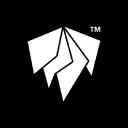Let’s clear the air right off the bat: this isn’t a post to undermine the value of formal education. Formal education is, without a doubt, invaluable. However, let’s also acknowledge the evolving landscape we’re a part of. In a world that changes with every tick of the clock, thanks to breakneck technological progress and fluid human needs, the route to career success is less a straight highway and more a series of intertwining paths.
Welcome to the inaugural post of our series:”Degree or Cert: The Playbook to Landing Your Dream Job.”
Whether you’re a newbie trying to break into the development or creative industries or a seasoned professional pondering your next career move, this series aims to be a guide. In the coming weeks, we’ll explore the must-have skills and cherry-picked certifications in various sectors. Ready to level up? Let’s dive in.
The Perfect Blend: Technical Skills & Soft Skills
To succeed in the technology industry, and more specifically in development, you need a balanced blend of technical prowess and people skills. Let’s break it down.
Technical Skills
- Programming Languages: You should be proficient in at least one of the mainstream languages—Python, Java, JavaScript, C#, or PHP.
- Data Structures and Algorithms: A strong grip on these can help you create software that’s not just effective but also resource-efficient.
- Databases: Understanding databases is key to storing and fetching data in an efficient manner.
- Operating Systems: A solid understanding of popular operating systems like Windows, macOS, and Linux can make your developer life much easier.
Soft Skills
- Communication: Whether it’s writing GitHub READMEs or presenting a proposal to clients, articulate communication is key.
- Problem-Solving: Being a developer isn’t just about writing code; it’s about finding and fixing problems. The sharper your problem-solving skills, the better your code.
- Teamwork: Software development is a collective effort. The ability to play well with others is as crucial as any technical skill.
- Self-Management: The freelance gigs, the deadlines, the “could you fix this ASAP?” requests—all require stellar time-management skills.
- Creativity: This is what separates a good developer from a great one. Innovative problem-solving can make or break projects.
- Continual Learning: In a field that never stops evolving, your willingness to adapt and learn is your best friend.
The Cherry on Top: Certifications
If you want to not just join the game but also win it, certifications can provide that extra edge. While not exhaustive, here’s a curated list of certifications that can supercharge your development career:
- Google Cloud’s ADW Certification
- What You’ll Learn: Designing, deploying, and managing cloud data architectures.
- Microsoft’s Azure Certification
- What You’ll Learn: Designing, implementing, and managing cloud applications and services.
- Meta Certification (Facebook)
- What You’ll Learn: Developing and managing apps across Facebook’s ecosystem—yes, that includes Instagram and WhatsApp.
- MongoDB Certification
- What You’ll Learn: Everything you need to know about setting up, running, and querying a MongoDB database.
- Agile and SCRUM Certifications
- What You’ll Learn: The A to Z of Agile and SCRUM methodologies, preparing you to excel in fast-paced development environments.
Wrap-Up
At the end of the day, a degree may open doors, but skills keep you in the room. Certifications are the perfect sidekick to your skillset, making you not just a part of the conversation but also a leading voice in it. They can help you bag that dream job, negotiate a higher salary, and continue climbing the professional ladder.
So, what’s your next move?
If you already have some of these skills and are familiar with these technologies, and you’re interested in a Work From Anywhere (WFA) job opportunity, visit our careers page and join us!






